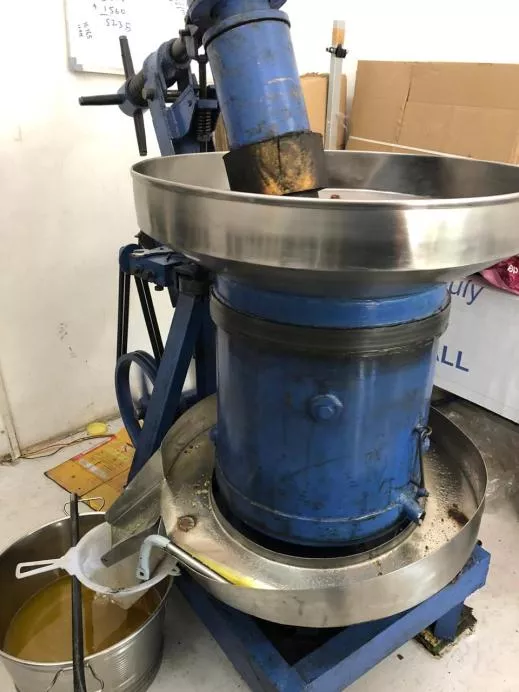Coconut, olive, apricot to peanut — visit any supermarket and you can see cold-pressed oils lining the shelves. Open a health food cookbook and chances are the oil suggested is cold-pressed. As per the dietary guidelines from ICMR (1), 30 gm of our total energy intake per day should come from oils and fats.So, the oil you choose has to be the right one. Are Cold Pressed Oils the answer? Read on!
What is Cold Pressed Oil?
All oils are extracted from seeds, fruits or vegetables and nuts. There are different techniques of oil extraction and cold pressing or wood pressing is one of the most natural ones that goes back to our ancient roots.
Cold Pressed oils are extracted by traditionalwood and stone press (Lakdi Ghani/Kachi Ghani) technique. The oil extraction process is done by slow churning oil seeds at low temperatures ensuring the nutrients, immunity-boosting antioxidants, aroma and flavour stay intact. A tradition that goes back to our Indian roots, the word ‘ghani’ finds a mention in the book ‘A Historical Dictionary of Indian Food’ written by K.T. Achaya, highlighting that it is a method used since ancient times in India.
According to the British Association of Cold Pressed Oil Producers (2), heat generated during Cold Press Oil extraction is required to be at 40 degree Celsius or lesser, ensuring no loss of nutrients.

Are Cold Pressed Oils better for you?
Nutritionists and scientific studies say they are and it’s one of the reasons they were traditionally used in India during olden days. Cold-pressed oils contain the right amount of fats and essential nutrients. Studies (3) say that Cold press extraction process helps to extract essential phytonutrients from oil seeds, which have antioxidant and anti-inflammatory activities.
The Journal of the American Oil Chemical Society (3) reports that cold-pressed oils can have an increased amount of antioxidants. They are also rich in Vitamin E, which has anti-inflammatory and healing properties, and Oleic acid that helps boost your immune system. It’s quite the bouquet nutrient wise. Take your pick!
It’s good for the environment too
If you are going green, Cold-Pressed oils are the right ones to go with. Research (4) shows that oil produced using the cold-pressed method are more environment-friendly as it doesn’t involve any additional chemicals, which ultimately gets added to the list of environmental pollutants.
How is Refined Oil different?
Refined oils are widely available in the market and used by most people, especially for Indian cooking. It is made using high heat during the extraction process to ensure maximum oil extraction and less wastage. The refined oils found on supermarket shelves go through a process called RBD — Refined, Bleached & Deodorised. Processes like deodorizing and refining affect the quality of essential fatty acids, tocopherols and phytosterols, say studies.
This means, while the impurities are removed in the process, it also takes away the nutrients that are added externally. Chances are, enough chemicals are going through your body as you consume these oils!
Are Cold Pressed Oils good for Indian cooking?
Traditionally wood pressed oils like coconut oil have been used for cooking in parts of Southern India, while Mustard Oil is a staple in Eastern India. Many cold-pressed oils can be used for Indian food when used at a lower temperature. Cold Pressed Oils also retain their natural flavour, adding to the taste. Cold Pressed oils like peanut oil or safflower oil or cold pressed blended oils work very well for Indian foods as it has a high smoking point, apart from being a good source of antioxidants. The best part is that it’s a native oil, indigenous to our country, with anti-inflammatory, heart-healthy, gut healing properties that go a long way in keeping you healthy, active & energetic.
List of studies quoted:
1. (http://spandan-india.org/cms/data/Article/A20151016155120_20.pdf
2. http://www.neoda.org.uk/bacpop
3. https://www.sciencedirect.com/science/article/abs/pii/S1878818118307291
4. https://www.ncbi.nlm.nih.gov/pmc/articles/PMC4110403/
5.https://www.researchgate.net/publication/329993761_Cold_press_in_oil_extraction_A_review

